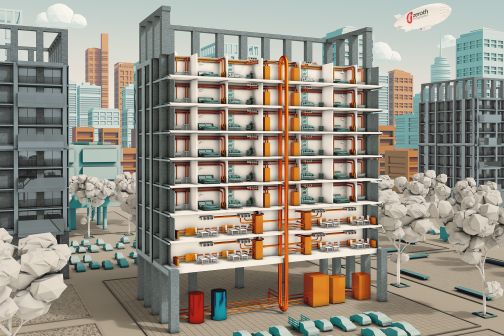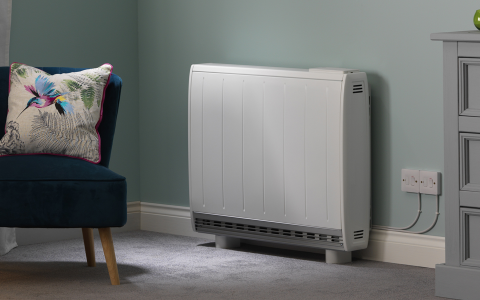Should the government discourage mechanical cooling?
The UK government’s proposal to introduce an overheating in new dwellings regulation aims to address the impact of rising summertime temperatures and increased risk of heat waves on buildings, especially within our overheating cities.

The government’s own prediction is that in England and Wales heat-related deaths are expected to more than triple to over 7,000 by 2050 as a result of climate change. Passive measures should always be the first port of call to address this, but should the government really be discouraging mechanical cooling where it may be required most - in new buildings with a high overheating risk? What about if that cooling could be provided by a low carbon, low energy solution?
A reliance on increased ventilation and passive measures
Within the regulation proposal, the focus on the removal of heat is centered around increased ventilation rates and the ability to open windows. However, depending on heat origin, these may be unimpactful measures in lowering temperatures to safe and comfortable levels.
These include:
- Where windows cannot be opened or doing so poses a risk (due to safety such as building height or because of poor external air quality).
- City apartments which are likely to see high external summer temperatures of 30°C or more, rendering increased ventilation rates ineffective.
Mechanical (comfort) cooling
With the UK heading towards mass heat pump deployment before 2030 and climate change causing temperatures to rise at a significant pace, it is not enough for the government to say mechanical cooling is not prohibited yet not desirable.
Instead, they should support heat pump specification and the ability to allow comfort cooling, where most required, using low carbon and highly efficient methods, as recently covered in our Using heat pumps to provide comfort cooling blog.
Specifying comfort cooling using heat pumps which also provide space heating and hot water offers a vastly different proposition to additional specification of a separate air conditioning system. There are already proven technologies offering this for apartments through the specification of an ambient communal loop, connected to reversible in-apartment heat pumps.
Research and specification of these types of systems have found them to be highly desirable by the market as a means of offering comfort cooling in a low carbon and highly efficient way. The use of heat pumps reduces the negative impacts of cooling compared to an air conditioning unit substantially by:
- Reducing energy use
- Increasing system efficiencies
- Keeping capital cost low by offering heating and comfort cooling via a two-pipe system
The technology's ability to utilise waste heat (i.e., using otherwise wasted heat produced in cooling mode to provide “free” hot water to the apartment) and capitalise on the efficiencies of heat pumps help to reduce occupant bills and address fuel poverty whilst helping to keep spaces at a safe and comfortable temperature.
Read more about The Zeroth Energy System here.
The overheating consultation
At Dimplex, we have been urging Government to recognise the difference between air conditioning and heat pump-led comfort cooling, and to clearly show this within the new overheating regulation and SAP 10 compliance requirements.
Now closed, we expected to hear the government’s response to this consultation in auto-comfort cooling, visit our comfort cooling solutions page or request a call with one of our HVAC specialists.











